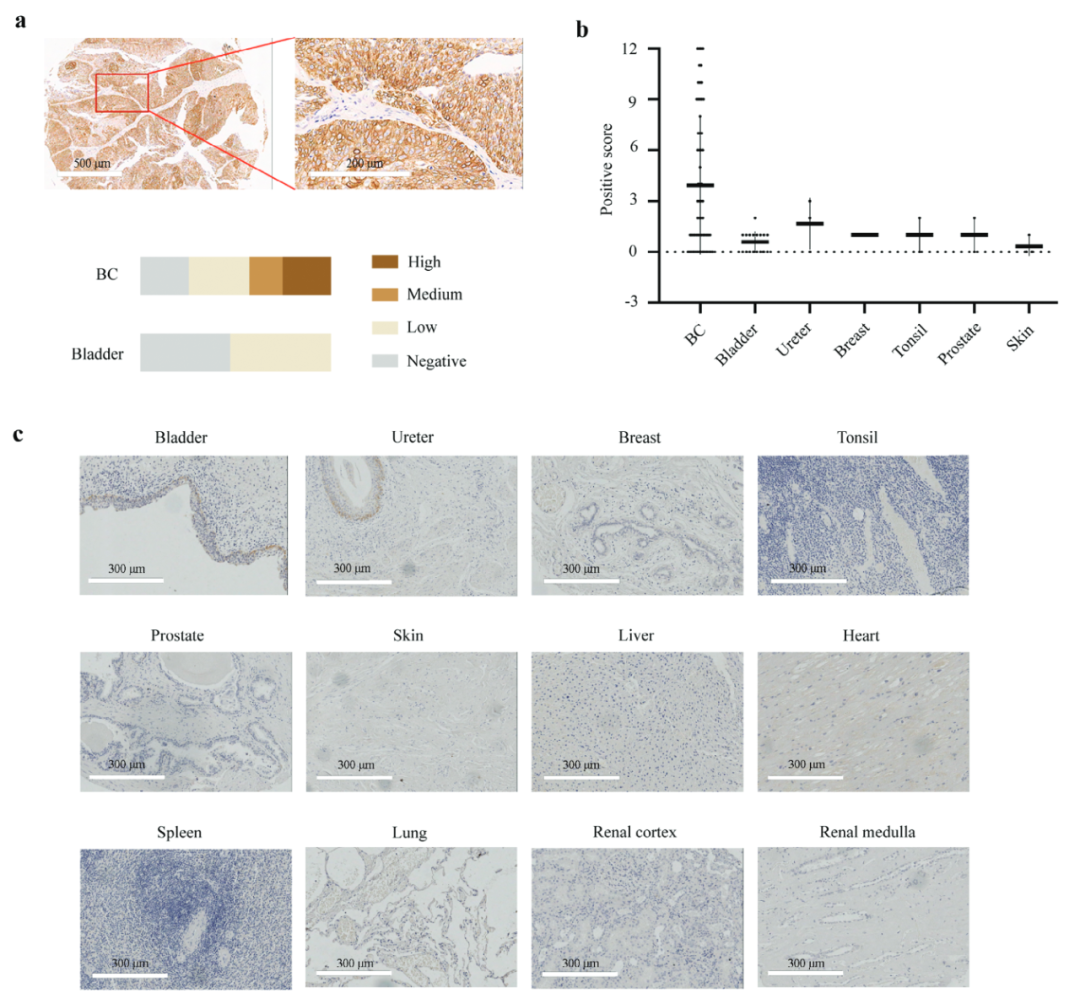Abstract:Chimeric Antigen Receptor (CAR) T‐cell therapy is a promising cancer treatment method. However, its application in bladder cancer (BC) remains limited, partially because of the absence of appropriate target molecules. Sialylated cancer‐derived IgG (SIA‐CIgG) is highly expressed in BC and is closely associated with malignant biological behavior. However, its potential as a target for CAR‐T cell therapy to treat BC is yet to be established. Here, it is found that SIA‐CIgG is highly expressed in most BC samples but displayed limited expression in normal tissues. CAR‐T cells specifically targeting SIA‐CIgG can effectively lyse BC cells and the cytotoxicity depends on SIA‐CIgG expression. Furthermore, SIA‐CIgG CAR‐T cells demonstrate milder tumor cell lysis and enhanced persistence compared with human epidermal growth factor receptor 2 (HER2) CAR‐T cells, which have undergone extensive clinical trials. After repeated tumor antigen challenges, SIA‐CIgG CAR‐T cells display substantial alterations in both the transcriptome and chromatin accessibility. When combining SIA‐CIgG CAR‐T cell therapy with FDA‐approved drugs to treat BC, the histone deacetylase inhibitor (HDACi), vorinostat, is found to enhance the ablility of CAR‐T cells for tumor cell lysis. Therefore, the combination of SIA‐CIgG CAR‐T cells and vorinostat is promising for BC treatment.








